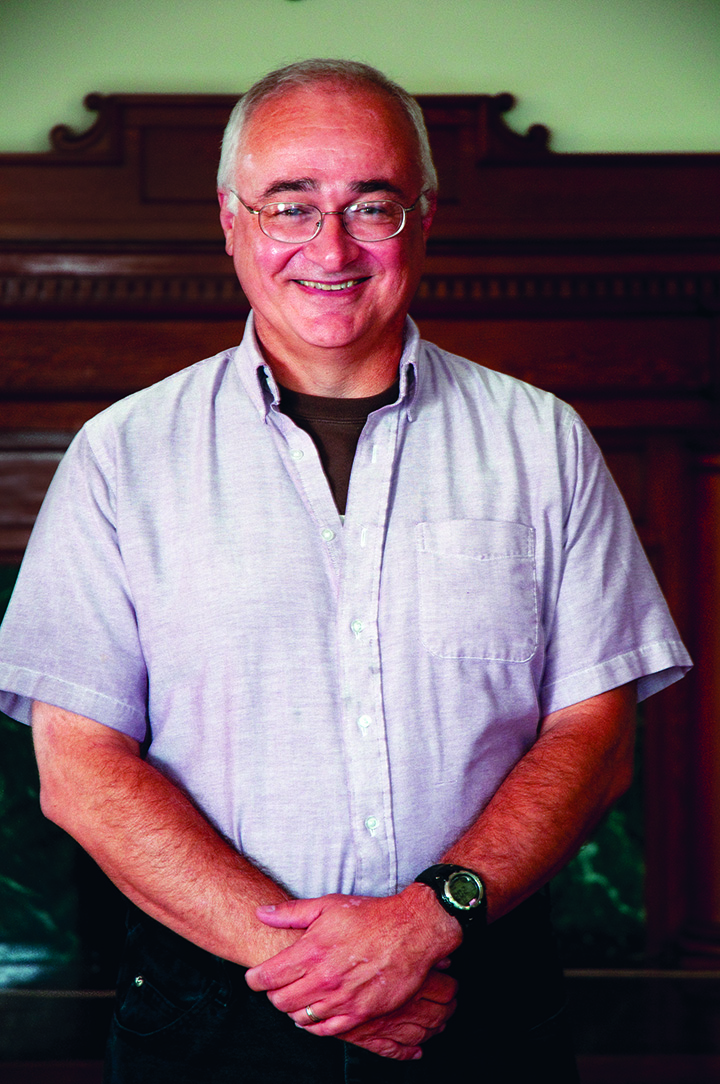 AFTER 38 YEARS AT CHESTNUT HILL COLLEGE, Bob Meyer, Ph.D. is retiring with the well-earned title of professor emeritus. Dr. Meyer came to the College in 1982, a freshly minted Ph.D. in Biology. During his tenure he grew in the job, but he also helped to grow the College’s offerings in the sciences, expanding our programs and fostering robust internship opportunities for students. He is a 2004 recipient of the Christian R. and Mary F. Lindback Foundation Award for Distinguished Teaching.
AFTER 38 YEARS AT CHESTNUT HILL COLLEGE, Bob Meyer, Ph.D. is retiring with the well-earned title of professor emeritus. Dr. Meyer came to the College in 1982, a freshly minted Ph.D. in Biology. During his tenure he grew in the job, but he also helped to grow the College’s offerings in the sciences, expanding our programs and fostering robust internship opportunities for students. He is a 2004 recipient of the Christian R. and Mary F. Lindback Foundation Award for Distinguished Teaching.
What was CHC like when you arrived?
When I came to CHC in 1982, there was no Martino Hall and no Fitzsimmons Hall. If you exited Fontbonne Hall and turned left, you ended up in the cemetery. I taught biology in the “science building,” a two-story cinder-block building built during World War II. Half of the bottom floor was one large chemistry lab, and the other half was Sister Eva Maria Lynch’s private lab. The second floor held three classrooms, all uncomfortably hot in the warm months and annoyingly noisy in the winter. Many a lecture I had to yell over the clanging of heating pipes.
Technology was all but absent: no cell phones, no iPads, no email. Xeroxing was expensive and rarely used. Does anyone remember mimeographs and thermofaxes? The only computer on campus was a large floor model in the business office. Probably the most exciting and impactful thing I’ve seen in my time at CHC is the advent of computer labs and integration of personal computers into the curriculum.
When I started, I was pretty green in terms of teaching skills, but I learned quickly because I had good mentors: Sister Florence Sullivan, Sister Helen Burke, Grace Banks, and especially Sister Rosemary Schierer. Without Sister Rosemary’s common-sense advice and good humor, I wouldn’t have made it through the early years.
Your degree is in genetics. How did you get into environmental science at CHC?
The environmental program was started by Sister Rosemary Schierer. When I got here, I was teaching genetics, molecular biology and environmental science for non-majors. But a 2006 faculty departure created an opening to teach environmental science, and I’ve been doing it ever since. I really enjoy it.
Tell us about your role in the Environmental Science internship program.
I started the summer research internship for the Environmental program about eight years ago. For the past three years, my wife and I made the commitment to fund the stipends for the students who participate.
I’ve taken a number of students to the Schuylkill Watershed Congress that runs every spring. It’s a conference in Montgomery County attended by a mixed group of grassroots people, academics, and state and federal people, like representatives from the Environmental Protection Agency and Pennsylvania’s Department of Environmental Protection. There, the internship students get to present their own research. It’s good experience for them, and I love working with them on it.
Has the biology program grown during your time?
The past several years, when other schools have been losing students, we’ve been increasing enrollment in biology. The biology department gets a pretty good chunk of the incoming class now, for our five programs: Molecular Biology, Regular Biology, Environmental Science, Forensic Biology, and Sports Medicine. The problem we have now—and it’s a good problem—is that we have to start offering multiple sections, because interest has increased so much.
Do you follow your former students’ paths after they graduate?
We certainly have our fair share of alum doctors, dentists, and veterinarians. But it’s a 50/50 deal. We do our part and they have to do theirs. Our kids all come from different backgrounds, and I think we do a darn decent job of getting them ready. More than 90 percent of our biology alums get into the field in some way and stay there: in tech positions, working in labs, governmental agencies. I’m proud of that. Our graduates have gone to work for the EPA, Pennsylvania’s DEP, UPenn, CHOP, Fox Chase, the DEA, state parks, and one became a mortician.
What does it mean to you to be named professor emeritus? Will we see you on campus?
It’s an honor. It means I’m still connected to the College, that I can come to campus for research and to keep mentoring students. I can keep my connections to important groups like Wissahickon Valley Watershed Association, the Senior Environment Core, and Whitemarsh Township. I’m glad to keep those relationships in the field going.
What accomplishment are you proudest of from your time at CHC?
My most satisfying accomplishments fall into the category of working with my students. These aren’t big accomplishments; rather, they’re a collection of a lot of small ones. I impacted more lives being at a smaller place—I helped more students; I certainly got to know them better. I feel like I have a family here, and I feel I’ve accomplished something, done something good. If I have any talents, this was the place to exercise them.






